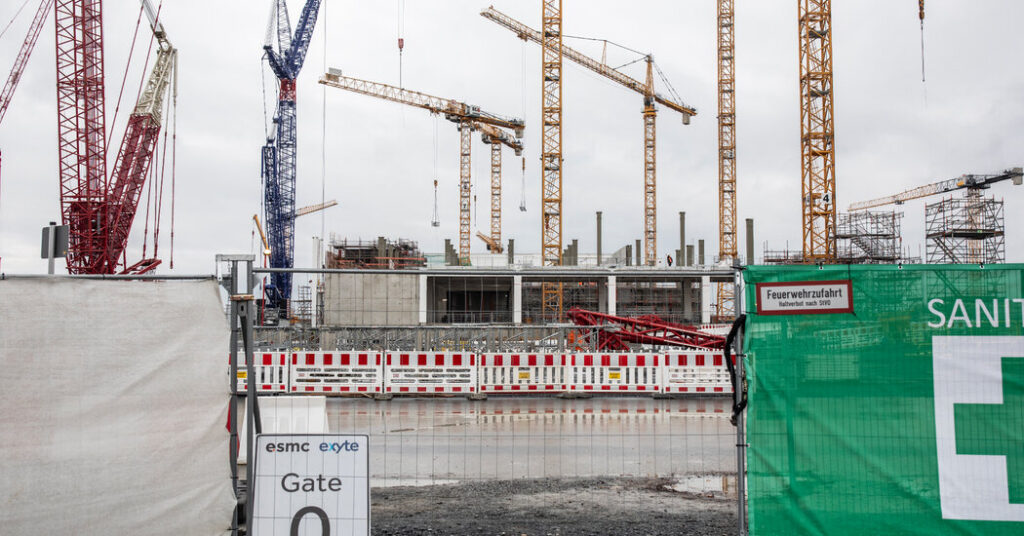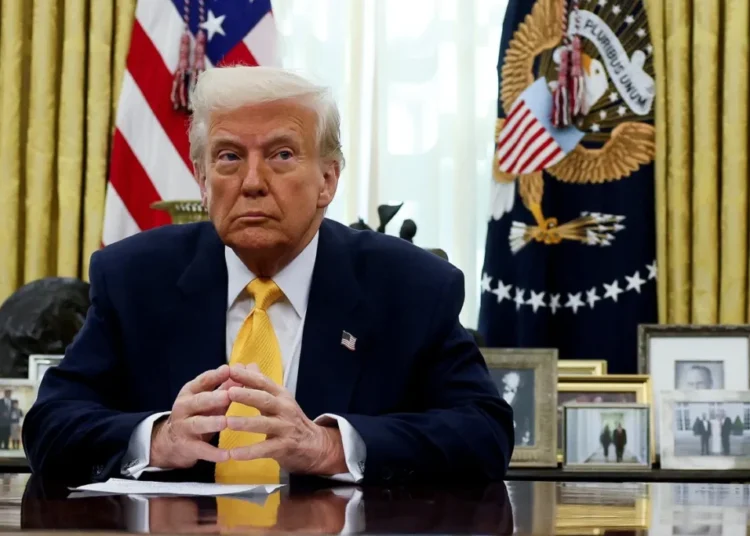For decades, most of the world’s advanced computer chip production was rooted in Taiwan. Then, supply chain disruptions during the pandemic and China’s increasingly hostile posture toward the island exposed the risks of such concentrated output just as demand surged with the boom in artificial intelligence.
Now, Germany, like the United States and Japan, is spending billions to produce more of its own chips with the help of the world’s largest contract chipmaker, Taiwan Semiconductor Manufacturing Company.
In a joint venture with a group of European chipmakers, TSMC is building a factory on the outskirts of Dresden. The project required an investment of 10 billion euros, or roughly $11 billion, with half of the funding coming from Germany. The plant is expected to start production in 2027. Developers and local officials envision that the project will further transform this corner of former East Germany into “Silicon Saxony.”
The plant’s timely debut depends in part on support from a network of chemical and equipment makers from Taiwan that have spent years honing their products to the chip giant’s specifications. But many of those key suppliers said they were struggling to navigate Europe’s complicated permitting procedures, labor laws and environmental regulations.
Europe’s need to make its own chips grew even more pressing last month when a dispute over a Chinese-owned chipmaker in the Netherlands constrained the supply of auto chips. Europe makes less than 10 percent of the world’s advanced chips. European officials aim to double that percentage by the end of the decade with the help of TSMC.
Europe’s share of global chip making began to fall after TSMC, founded in 1987, pioneered a new model of semiconductor production in which technology companies like Nvidia and Apple designed their own chips and relied on TSMC to manufacture them. As more companies decided to forgo the expense of maintaining chip production, semiconductor manufacturing became increasingly consolidated at TSMC’s sophisticated facilities in Taiwan.
A portion of Europe’s remaining chip industry is near Dresden, where factories operated by Infineon and Robert Bosch Semiconductor specialize in producing chips and sensors for the automotive industry. These companies still rely on TSMC for some of their more advanced semiconductors. TSMC’s joint venture in Dresden includes Bosch, Infineon and another of its European clients, NXP.
“Right now, the European ecosystem needs this support from Taiwan,” said Radek Holy, a vice rector at Czech Technical University and director of an exchange program in semiconductor engineering between Taiwanese and Czech graduate students.
The task of etching tiny circuits onto thin silicon wafers requires a factory the size of an airplane hangar, where rooms are filled with equipment from numerous suppliers. For almost two decades, Taiwan Puritic Corporation has built the pipes that move gases through TSMC’s factories.
“Going abroad takes a lot,” said West Tu, the Taiwanese chief executive of TPC Germany, the local subsidiary of Taiwan Puritic.
Mr. Tu would know, because he did it once before. Five years ago, when TSMC announced its investment in Arizona, Mr. Tu took a nearly empty flight to Phoenix at the height of the pandemic to set up a TPC subsidiary there, now called Propersys. In May 2024, he closed on a house in the area, preparing to settle into life in the American Southwest. Then his boss asked him to head to Dresden.
In Germany, TPC encountered a wide range of issues, including visa paperwork, language barriers and the integration of local hires into a foreign company culture.
Such concerns are not uncommon for any company moving abroad. But the hiccups create additional hurdles for meeting the exacting requirements of a semiconductor fabrication plant, a modern-day shrine of efficiency and precision.
For TPC, one urgent task is to find people qualified for highly technical jobs who are also eligible to work in Germany long term. Mr. Tu’s Taiwanese employees are limited to three-year visas, he said, so he needs local workers to sustain the operation.
“I need people who can stay,” Mr. Tu said. “Otherwise, I’ll be completely short-staffed.”
Some European engineers prefer working at a local company over a Taiwanese firm, which may require employees to travel to Taiwan for weeks or months of training and may expect workers to be available around the clock. Mr. Tu estimated that he needed to hire 20 locals. So far, he said, he does not have a single German employee. Few have applied, he added.
Even securing a lease for office space near Dresden’s airport took Mr. Tu eight months, because of the limited options available to a foreign company.
European officials hope that the TSMC project will serve as a catalyst for further investment to build out a larger semiconductor ecosystem and create about 10,000 jobs in the region.
“The investment of TSMC is a real rocket start point for the economic development of the region,” Dirk Hilbert, the mayor of Dresden, said in a television interview this year.
The Czech Republic, which shares a border with Saxony in Germany, is also pitching Taiwanese businesses. Company executives from Taiwan said Czech officials had taken them to the city of Usti nad Labem, about an hour from Dresden, to promote the area’s chemical industry and relatively low labor costs.
While the enthusiasm is great, the reality is challenging.
It costs almost twice as much to build a factory in Europe as to build one in Taiwan, and the permitting process can add months to the process, said Wolfgang Büchele, chief executive of Exyte, the engineering, procurement and construction contractor that is managing the TSMC project.
“In Germany, you have to provide more paperwork, and the effort to file the applications and the time for the authorities to read all that and come back with questions takes longer than you would expect in Taiwan,” he said.
At home, TSMC is used to quickly securing the necessary resources and government approvals to propel its relentless expansion. The company built about three plants per year for nearly a decade. Almost all of them were in Taiwan. That pace has accelerated with the frenzied demand for semiconductors to run A.I. systems. In April, TSMC said it would start construction this year on eight more factories.
But as TSMC and its network of Taiwanese suppliers seek to expand overseas, the moves have been met with anxiety and criticism in Taiwan, where many people consider the chip sector an economic pillar and a shield against potential aggression by China. Some worry that the billions TSMC has committed to spending on its factories in Arizona, Japan and Dresden will ultimately dilute Taiwan’s dominance over global chipmaking.
Last week, Taiwan’s former president Tsai Ing-wen visited Dresden and toured the site. She encouraged the Taiwanese engineers there to “work hard overseas, but never forget Taiwan.”
Meaghan Tobin covers business and tech stories in Asia with a focus on China and is based in Taipei.
The post Europe’s Chip Dreams Confront Business Realities appeared first on New York Times.




